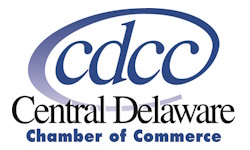State and Local Taxes
Delaware has reduced its personal income taxes at all income levels. The State has never had a general sales tax or an inventory tax. There are no State real property taxes, and the local real property taxes are very low. The total State and local tax burden in Delaware is competitive with most other states.
For more information regarding:
Business taxes, contact the Division of Revenue’s Office of Business Taxes at 744-1085 or by e-mail.
Personal taxes, contact the Division of Revenue’s Office of Personal Taxes at 744-1085 or by e-mail.
The State of Delaware has adopted a clear, bipartisan policy to attract new business and encourage the expansion of existing operations. Key tax features which now make Delaware more competitive include:
- A Constitutional requirement that any increase in existing State taxes, or new State taxes, be adopted by a super-majority (3/5) vote in the State Legislature.
- A Constitutional limit on State appropriations which works to relieve pressure on the tax structure and to build surpluses for potential tax reductions.
- No State or local general sales taxes.
- A regressive bank franchise tax structure ranging from 8.7% of bank taxable income up to $20 million to 2.7% for all bank taxable income over $30 million. Effective January 1, 1997, a new rate of 1.7% of income in excess of $650 million will be added. Taxable income is 56% of net operating income after adjustments.
- An improved structure for unemployment insurance taxation that includes accelerated experience ratings for new employers.
- Tax credits on bank franchise, corporate income and reduction of gross receipts taxes for new and expanded businesses.
- Additional tax credits on corporate income and reduction of gross receipts taxes for new and expanding businesses locating in 30 targeted census tracts.
- Property tax relief for new construction and improvements of existing property.
- Real property taxes which are among the lowest in the country.
- No personal property or inventory taxes.
- The exemption of certain investment and holding companies from corporate income taxation.
- No fixtures tax.
- The adherence of the State tax structure to the federal definition of corporate net income so that companies may take full advantage of any federal tax law change, such as more rapid depreciation of newly purchased assets.
- Two approved foreign trade zones will allow the deferment of import taxes.
Public Utility Tax rebates of 50% on increased consumption for qualifying industries, and reduced rate for manufacturers and agricultural processors.
In 1996 and 1998, CFO magazine rated Delaware as having the fairest and most equitable business tax climate. Businesses should note that Delaware has no tax on inventories and no tax on process machinery or equipment. Businesses and individuals alike will be pleased to find no sales tax, no personal property tax, no unitary tax, no machinery or equipment tax, and no State-level real property tax in Delaware.
The tax rate is 8.7% on net income. Taxes are not paid on interest from United States or State of Delaware obligations or subdivisions of either, nor on gains from the sale of United States or Delaware securities. Taxes are not paid on dividends of foreign corporations which qualify for, and claim, foreign tax credit on federal returns. Investment and holding companies maintaining and managing intangible investments, and collecting and distributing income from such investments or from tangible property outside Delaware, are exempt from State corporate income tax.
Income from interest, rents and royalties, patent and copyright royalties, and gains and losses from the disposition of real property is allocated directly to the states where the property is physically located or where the transaction took place, reduced by applicable expenses.
For those businesses which operate interstate, unallocated corporate income is apportioned on an equally weighted three-factor formula that averages the ratios of: (1) Delaware property to total property, (2) Delaware wages to total wages, and (3) Delaware gross receipts to total gross receipts. The apportionment formula is applied to a company’s entire taxable income, excluding allocated and exempt income.
Partnerships, sole proprietorships and shareholders of S Corporations are not subject to State corporate income taxes. Individuals carrying on business as partners, sole proprietors or who are shareholders of S Corporations are liable for personal income taxes imposed by the State only on their proportionate share of partnership, proprietorship or S Corporate income. The business may be subject to occupational and/or business license fees, as well as a gross receipts tax on sales/services within Delaware.
The rate of tax on the net income of banks, trust companies, and national banks is 8.7% of taxable income not in excess of $20,000,000; 6.7% of taxable income in excess of $20,000,000 but not in excess of $25,000,000; 4.7% of taxable income in excess of $25,000,000 but not in excess of $30,000,000; 2.7% of taxable income in excess of $30,000,000 and, effective January 1, 1997, 1.7% of taxable income in excess of $650,000,000. Taxable income, for State tax purposes, equals net income reported on line eight of the FDIC Consolidated Report of Income. This income definition allows a 100% deduction for federal income taxes paid.
A domestic corporation may be established under the General Corporation Law of Delaware by filing the proper documents with the Secretary of State. The initial cost is based on a company’s authorized capital stock, either (A) par value stock or (B) no par value stock, as follows:
A. Par Value Stock
Up to $2,000,000
$.20 per $1,000
Over $2,000,000 to $20,000,000
$.10 per 1,000
Over $20,000,000
$.04 per 1,000
B. No Par Value Stock
Up to 20,000 shares
$.01 per share
Over 20,000 shares to 2,000,000 shares
$.005 per share
Over 2,000,000 shares
$.0020 per share
Once a corporation has established Delaware as its legal home, the annual franchise tax includes:
A. Annual Report Filing Fee $20.00B. Tax (lesser amount computed by (1) or (2) below):
1. Authorized shares – par or no par:
3,000 shares or less
$30.00 per year
3,001 shares to 5,000 shares
50.00 per year
5,001 shares to 10,000 shares
90.00 per year
Each additional 10,000 shares or part thereof
50.00 per year
2. In the case of par value stock under $100, an alternative is offered based on assumed capital, found by dividing gross assets by all issued shares and multiplying quotient by such authorized par value shares; provided, however, that if said quotient is less than the par value of any shares having par value, such shares shall be multiplied by their par value instead of by said quotient. Rate of tax is $200 per $1,000,000. Minimum tax–$30, maximum–$150,000.
Whether the franchise tax is computed according to (1) or (2) above, the minimum tax is $30 per year, and the maximum tax is $150,000 per year.
License Fees and Gross Receipt Taxes
Most occupations and businesses require the purchase of a license in order to operate legally in Delaware. Although license fees are minimal, several types of businesses, including those listed below, are required to pay a gross receipts tax in addition to the business license fees. Gross receipts tax information for types of businesses other than those listed may be obtained from the Delaware Economic Development Office.
Manufacturers – $75 annual fee for each place of business, plus a tax of 0.24% on the gross receipts for all goods manufactured in Delaware, regardless of the location of sale. In computing monthly gross receipts, the first $600,000 ($1 million, effective January 1, 1999) in receipts are not subject to taxation.
Wholesalers – $75 annual fee for each place of business, plus a tax of 0.384% on the gross receipts of all goods physically delivered within Delaware to the purchaser. In computing monthly gross receipts, the first $20,000 ($50,000, effective January 1, 1999) in receipts are not taxable. Manufacturers which also wholesale their products are subject to both the manufacturing and wholesale tax on gross receipts.
Retailers – $75 annual fee, plus $25 for each separate branch or additional business location. Each retailer pays an additional tax of 0.720% on the aggregate receipts in excess of $35,000 ($50,000, effective January 1, 1999) per month.
Restaurants – $75 annual fee, plus $25 for each separate branch or location, plus an additional fee of 0.624% on aggregate receipts in excess of $35,000 ($50,000, effective January 1, 1999) per month.
Food Processors – $75 annual fee for each place of business, plus a tax of 0.192% on gross receipts, in excess of $13,000 ($50,000, effective January 1, 1999) per month, from all goods sold within Delaware.
Petroleum Products Wholesalers – $75 annual fee for each place of business, plus 0.9% (Hazardous Substances Cleanup Tax) and 0.384% on aggregate receipts in excess of $20,000 ($50,000, effective January 1, 1999) per month. Wholesalers are also subject to a surtax of 0.24% (.0024) on the sale of petroleum products.
Petroleum Products Retailers – $75 annual fee for first location and $25 for each additional location, plus additional fees of 0.9% (Hazardous Substances Cleanup Tax) and 0.720% on aggregate receipts in excess of $35,000 ($50,000, effective January 1, 1999) per month. (Retailers are exempt from 0.9% and 0.720% tax if the Hazardous Substances Cleanup Tax was paid to their supplier.)
Occupational/Professional/General Services – $75 annual fee for first location and $25 for each additional location for most, plus an additional fee of and 0.384% on aggregate receipts in excess of $15,000 ($50,000, effective January 1, 1999) per month.
1. Motor fuels – $.22 per gallon.
2. Realty Transfer Tax – 2% (many localities have a 1% add on) of the gross sale price (1% by buyer and 1% by seller).
3. Lease/Use Tax – Lessee 1.92% of rental payments (monthly); Lessor 0.288% of rental payments received in excess of $39,000/quarter on personal property rentals, including automobiles, payable by the lessee.
4. Property Rental Tax – 0.384% on gross rentals of commercial property payable by the lessor.
5. Public Accommodations Tax – 8% excise on rents received for transient lodging in hotels, motels or tourist homes. Annual license fee: Hotel – $25 per room and $30 per suite; Motel – $25 per room; Tourist home – $15 per room.
6. Public Utilities Tax – 4.25% (2% for qualified manufacturers and food processors) excise on nonresidential consumption for:
A) Electricity used for any heat, light, or power. (Charges for electricity used in electrolytic, electroarcthermal, and air separation manufacturing processes are exempt.) (See Public Utility Tax Incentives, Page II-15.)
B) Natural gas piped from a distribution center to the user. (Charges for electricity used in electrolytic, electroarcthermal, and air separation manufacturing processes are exempt from taxation.) Also see Public Utility Tax Incentives, Page II-15.
C) Intrastate telephone and telegraph communication services.
D) Cable television communication services are taxed at 2.125% (includes residential service).
7. Motor Vehicle Registration Fee
A) Passenger cars, station wagons – $20 flat rate annually.
B) Commercial trucks, trailers, semi-trailers, and recreation vehicles – $20 annually for gross weight of 5,000 pounds or less, plus $2.60 for each additional 500 pounds, and $20 per trailer up to three semi-trailers.
8. Motor Vehicle Document Fee (payable at time certificate of title is issued) – 2.75% of net purchase price – minimum fee, $8.











